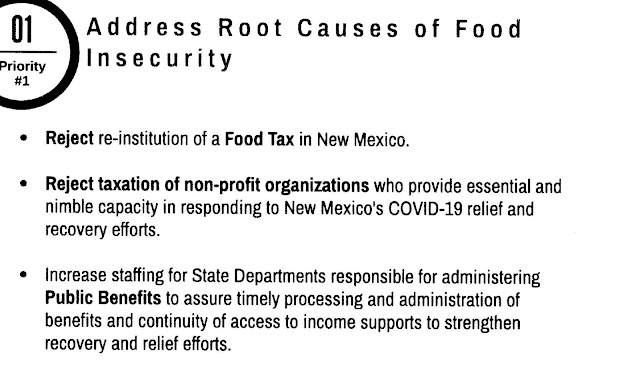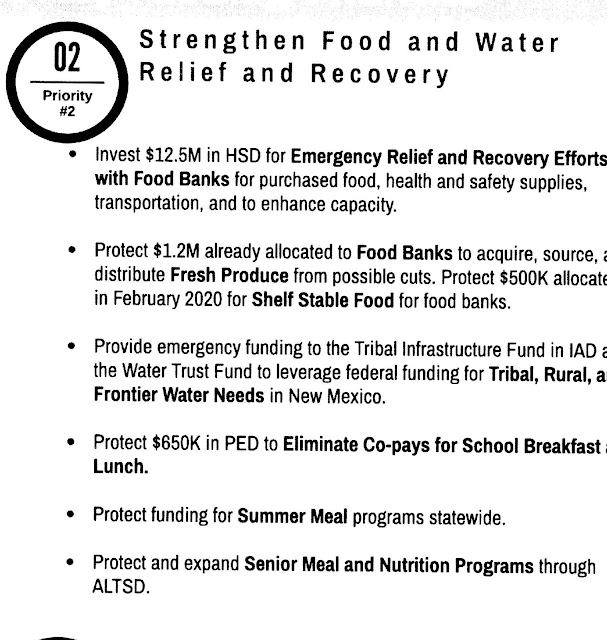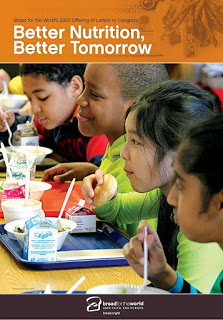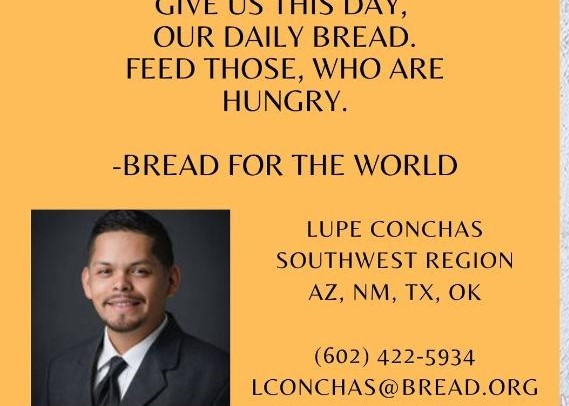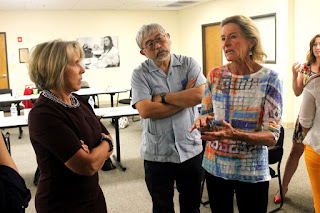The Food, Hunger, Water and Agriculture Policy Work Group recently sent a letter to each member of the New Mexico House and Senate ahead of the special session, which has been scheduled for Thursday, June 18. Legislators will attempt to adjust the state budget to account for the negative financial impact caused by the outbreak of COVID-19. By some estimates, the financial crisis caused a $2.4 billion drop in state revenues.
 |
| Work group at 2020 legislative session |
The work group started efforts to address hunger in New Mexico last summer, months before the pandemic occurred. We attained some modest gains during the 2020 regular session of the State Legislature, including a measure to eliminate co-pays for almost 12,500 students at 185% of the federal poverty level. When the pandemic-related emergency occurred the work group convened quickly to create a plan of action.
'Critical Needs'
"We are urgently requesting that you prioritize policy and funding solutions create access to healthy food and water while strengthening our State's food system, Addressing the root causes of insecurity, protecting and investing in the emergency food and water relief efforts, and bolstering local agriculture and food systems are critical needs.
Below are snapshots of a consensus-backed blueprint, compiled in consultation with the Legislative Hunger Caucus.
The Food, Hunger, Water and Agriculture Policy Workgroup is comprised of a group of bipartisan policy makers, agricultural producers, the emergency food sector, faith leaders, researchers/academics, and public policy advocates.
The participating groups are Agri Cultura Cooperative Network, Center for Health Innovation, Delicious New Mexico, Farm to Table, Indigenous Life Ways, Interfaith Hunger Coalition, McKinley Collaborative for Health Equity, National Young Farmers Coalition, New Mexico Association of Conservation Districts, New Mexico Association of Food Banks, New Mexico Center on Law and Poverty, New Mexico Farmers' Marketing Association, New Mexico First, New Mexico Food and Agriculture Policy Council, New Mexico Social Justice and Equity Institute, New Mexico Voices for Children, South Valley Economic Development Center, The Montibon Company, Think New Mexico, Village of Los Ranchos de Albuquerque
